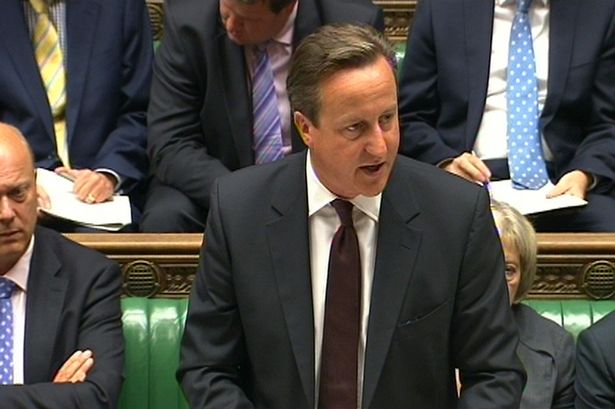A British Anwar al-Awlaki Scenario? UK Targets British ISIL Member, in Syria, on an Imminent/Continuous Threat Theory
BBC News has the details here. To be clear, the novelty here is not British involvement in the use of lethal force against an ISIL target, nor simply the fact that a British citizen (Reyaad Khan of Cardiff) was the target of the carefully-planned strike (which also killed another British ISIL member, Ruhul Amin, among others). The novelty, instead, was the location of the attack (Syria) and the resulting invocation of what looks very much like the US government's imminent/continuous-threat self-defense theory.

Published by The Lawfare Institute
in Cooperation With

BBC News has the details here. To be clear, the novelty here is not British involvement in the use of lethal force against an ISIL target, nor simply the fact that a British citizen (Reyaad Khan of Cardiff) was the target of the carefully-planned strike (which also killed another British ISIL member, Ruhul Amin, among others). The novelty, instead, was the location of the attack (Syria) and the resulting invocation of what looks very much like the US government's imminent/continuous-threat self-defense theory.
Background: Last September, Parliament voted overwhelmingly in favor of allowing force against ISIL in Iraq, but not in Syria:
Mr Cameron also said there was a "strong case" for UK military intervention in Syria, where the US and its Arab allies are engaged in aerial bombardment of IS positions. The PM said he believed military action there would be lawful on the grounds of intervening to prevent a humanitarian catastrophe, and of protecting Iraq from attacks being launched from Syria. But he acknowledged there was no consensus for such a move among MPs. The government has said it would seek separate Parliamentary approval for the extension of air strikes to Syria but reserved the right to act without consulting MPs in the event of a humanitarian emergency.
Note that the PM's arguments from 2014, quoted above, appeared to concern the U.N. Charter Article 2(4) question that would arise if the British were to use force in Syria's territory without the government's consent. That is to say, he appeared to be arguing that attacks on ISIL in Syria could be justified, notwithstanding Article 2(4), either as an aspect of Iraq's self-defense right or perhaps even the sovereignty-waiver variant of the responsibility-to-protect (in both cases intermixed with a claim about the Assad regime being unable to address the problem on its own).
What the quoted language did not say, in contrast, was that the British might also justifiably use force in their own national self-defense, including in particular in cases in which an ISIL member might be plotting an attack targeting British citizens in circumstances where the person's capture is not feasible and the precise nature and moment of the attack is not realiably knowable in advance. Put another way, PM Cameron did not explicitly invoke, at that time, a counterterrorism self-defense theory comparable to the "imminent/continuous" threat test associated with American CT policy.
However, British officials in 2014 did apparently assert, albeit in vague terms, that they still would be willing to use force in Syria should a "critical British national interest" be at stake. And now we know that this category includes what looks a lot like the U.S. government's theory of national self-defense in situations involving active plotting and no feasible arrest option. PM Cameron in his statement to Parliament today made this clear. Referring both to an earlier American drone strike targeting a British ISIL member, and the British strike targeting Reyaad Khan, he said:
[The targets were] British nationals based in Syria who were involved in actively recruiting Isil sympathisers and seeking to orchestrate specific and barbaric attacks against the West including directing a number of planned terrorist attacks right here in Britain, such as plots to attack high profile public commemorations, including those taking place this Summer. We should be under no illusion. Their intention was the murder of British citizens. So on this occasion we ourselves took action. Today I can inform the House that in an act of self-defence and after meticulous planning Reyaad Khan was killed in a precision air strike carried out on 21st August by an RAF remotely piloted aircraft while he was travelling in a vehicle in the area of Raqqah in Syria. ... They were Isil fighters and I can confirm there were no civilian casualties. We took this action because there was no alternative.


.jpg?sfvrsn=82a6ee72_5)


